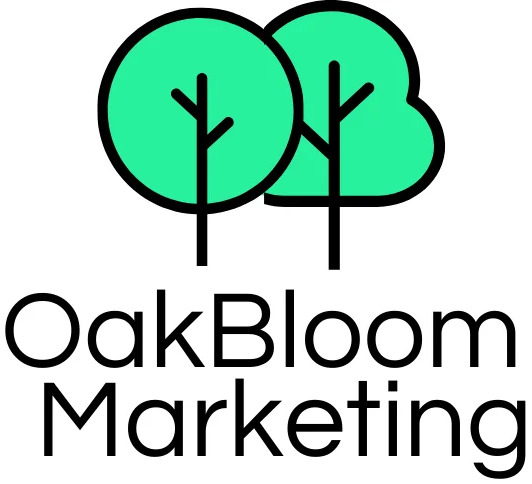Kamala Harris and the Scrutiny of Female Laughter
Kamala Harris inspires me for many reasons, but especially how she expresses joy through laughter. It’s refreshing because I received one puzzling feedback from multiple male bosses during my career:
I needed to laugh less.
This message always confused me. After all, I like to laugh, express joy, and help people feel good! My laughter is genuine, a natural expression of my personality and engagement. Granted, laughter would sometimes come up with nerves, but it frustrated and angered me to receive this “helpful career feedback.” It seemed like a projection of their own discomfort, undermining my confidence, and delivering a message of “we don’t like you how you are.”
As my career progressed, I realized this “feedback” was part of a larger pattern of gender bias and covert sexism in the workplace. We pay the price for expressing joy at work.
Seeing female leaders like Vice President Kamala Harris and former Secretary of State Hillary Clinton reach some of the highest positions in the United States and still face intense scrutiny and negative commentary about their laughs makes me livid. Shame on the media outlets who perpetuate sexism and describe Harris’s laugh as “awkward” and Clinton’s as a “cackle.”
As David Masciotra shares in his Salon article, it’s more about men feeling uncomfortable with emotions than the women who express them. Psychotherapist Avrum Weiss summarizes: “Men often get uncomfortable when women have strong feelings. This is particularly true when women are upset, but men can also feel uncomfortable when women are excited, full of joy, or even really turned on. Women understand this and learned long ago to suppress their own excitement in order not to make men uncomfortable.”
I often internalized the laughter feedback as something inherently wrong with me. Decades later, I still joyfully, or even nervously, laugh but now I’m stepping fully into my power and expressing myself authentically and vulnerably. I want to help women who face these bizarre criticisms. I’m here to say, there is nothing wrong with you!
Haters bully laughter
We have all seen how the 2024 Republican Presidential campaign zeros in on Kamala’s laugh, trying to depict her joy as a crime. Trump calls the vice president, “Laughin’ Kamala.” The Republican Party tweeted, from an official account, that “Kamala Harris brought her cackle to Milwaukee,” with a short clip of Harris laughing during her remarks to a lively swing state audience.
On the “Drew Barrymore Show,” Harris addressed these attacks. “I have my mother’s laugh. I grew up around a bunch of women who laughed from the gut. They would sit around the kitchen, telling big stories with big laughs. I think it is important to remind each other, and our younger ones, don’t be confined to other people’s perception about how you should act…”
It brought me to tears of joy that we have such a role model of inclusion. Thank you, Kamala! I’m done being confined to other people’s perceptions about how I should act. It’s time we bring awareness to these insidious patterns to move beyond bias and toward joy and laughter.
Why is women’s laughter such a lightning rod for criticism?
Research sheds some light on sexist workplace expectations and double standards.
The gender bias in humor
I personally love to lighten the mood with humor, smiling, and laughing. It’s a natural way to help people connect. However, when women use humor in presentations, we get dinged. A University of Arizona study, published in the Harvard Business Review, found that “when the male manager added humor to the presentation, he was given higher ratings of perceived status, job performance, and leadership capability compared to when he did not include any humor. However, the opposite occurred for the female manager. Adding humor led to lower ratings of perceived status, job performance, and leadership capability.”
The double bind
Women walk a tightrope in professional settings. As Joan C. Williams, explains the double bind in her book What Works for Women at Work, “Women face a trade-off between competence and likability. If they’re too ‘feminine,’ they’re liked but not respected. If they’re too ‘masculine,’ they’re respected but not liked.” Laughter, it seems, falls on the “feminine” side of this equation, potentially undermining perceptions of competence and leadership ability.”
The way forward
To give the benefit of the doubt, perhaps my male bosses were looking out for me. Maybe they understood the bias that my laughter made me likable; therefore, caused my male counterparts to respect me less or find me less competent – despite a continuous track record of stellar results.
What I love about Kamala is her power and ability to show up authentically, confident, and in control (of even her laugh). We could see from the September 2024 Presidential Debate. She laughed at Trump’s absurdities, and controlled the narrative. She owned the stage, and as the Guardian said, “By the time Trump was declaring immigrants were “eating the dogs” of small town Americans, Harris was openly laughing, with a mouthed “Oh, come on.”
I may never get to Kamala’s level of emotional regulation. However, stepping into self-acceptance allows me to be ok with where I’m at. It gives me strength to tell my story and help other highly sensitive people.
What I wished I could tell my younger self
Back then, I didn’t have all the research about bias. If I could go back in time, I’d share with the younger me and all women who relate to this story:
-
Love yourself. You are great just as you are.
-
Own your laughter confidently. Don’t suppress natural expressions of joy, but own your laugh as part of your authentic leadership style.
-
Address biases directly. Have candid conversations about feedback on your laugh or humor to understand underlying concerns.
-
Create awareness. Share articles like this with your wider network to help everyone understand how bias creates unnecessary barriers to success.
It’s clear that gender bias in perceptions of humor and laughter presents real challenges for women in the workplace. By understanding these biases, and seeing powerful women like Kamala break barriers while demonstrating joy, it may help turn laughter from a liability into an asset, using it to build connections, demonstrate confidence, and assert leadership.
As we continue to push for more equitable workplaces, let’s not forget the power of joy and laughter! Take to heart what Andrew Carnegie said, “There is little success where there is little laughter.”
Jeanel Carlson is the co-founder and CEO of OakBloom Marketing, and a champion for women. Connect with her on LinkedIn. Read her founder’s story or contact her at OakBloom Marketing.









